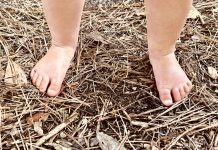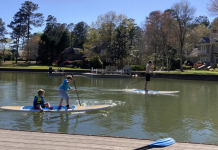 As parents, we can find ourselves in some really special situations.
As parents, we can find ourselves in some really special situations.
From those that melt our hearts to those that shock our very cores, the things we experience and witness run the gamut. This is why the pause is such a powerful parenting tool. As with most other humans, our emotions as parents can get the best of us from time to time, and we find ourselves responding from those emotions. This isn’t so bad when we are feeling joy, gladness, contentment, and other generally positive sensations. But when we are feeling anger, frustration, confusion, fear, resentment, hurt, and so many others, our responses can often be on the negative side.
Enter the pause.

When we pause before we respond, it gives us that split second to breathe and let our initial response roll on away if needed. And, if you’re like me, that initial response usually needs to go. For example, when I walk into a kid’s bedroom the day after they have “cleaned” it and it looks like the Avengers battled it out in there, my first response can tend to be a little harsh. Why? Because I am truly shocked that one individual can create such chaos in less than 24 hours. (And probably a little ticked off.)
So I pause, let that first response roll away, and opt for something a little more positive. As we encounter all of those up and down situations that are just parts of parenting, learning to pause before we respond can be the difference between a reaction (which is emotionally driven) and a response (which is outcome driven).

When we react to the situations around us, we often place ourselves and our children at the mercy of our emotions. When we blow up, use sarcasm, or make impulsive accusations—all based on our emotional state—we are teaching our children to navigate our emotions. We are placing the responsibility of our emotions on them. Reactions are impulsive and often seek to relieve ourselves of some sort of emotional burden.
When we master the pause, we can move toward more responsive parenting. Responses are more measured and take into consideration the wellbeing of those around us and long-term outcomes. Responses are thoughtful and often seek to teach our kids.
Of course, the pause itself is not the answer. It is what we do with the pause that matters.
Pause. Peace. Pivot.
The point of the pause is that we get to a place of peace, or, basically, calm down. Take a few seconds, or minutes, within the pause to relax. Find a calming technique that works for you and practice using it during the pause. It could be counting, praying, or visualizing your negative emotions rolling down your back. Figure out what works and stick with it.

Once you are calm, then you can pivot. To pivot essentially means to go the opposite direction of where you were headed. For some, this means letting that first comment roll away, while others might need to actually walk away. Some of us might ask a curious question instead of making an assumption. Once you are calm, you will often be able to discern the best course of action and move in that direction.
Keep in mind that it’s okay to take small steps. Start with the pause. Get used to taking a few seconds before you respond to your kids. Then add in peace, using the pause time to calm down, and move to the actual pivot when you are ready. Creating new habits will not happen overnight. It takes time to get used to doing things a new way. So give yourself grace as you shift your parenting habits. Start small and commit to getting back on course when you find that you have drifted from your goal.











